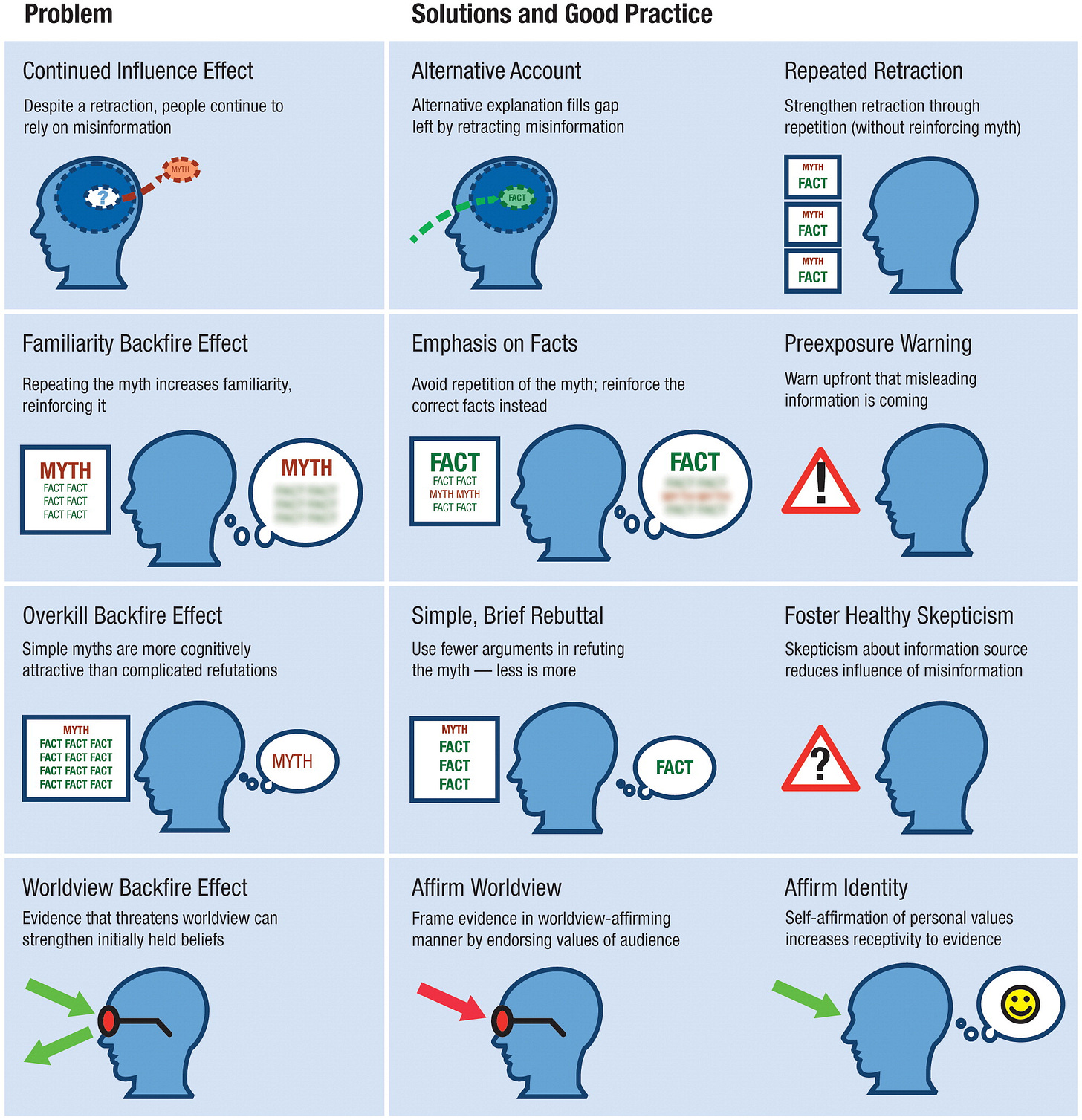Fact-based inoculations directly address the factual inaccuracies at the heart of misinformation, explaining what is incorrect, and providing accurate information to counter falsehoods. By preemptively clarifying misconceptions, individuals are equipped with factual knowledge that can resist future encounters with similar misinformation. Fact-based inoculations in the classroom can help students understand the characteristics of good science. Students hold a variety of science misconceptions, and addressing them directly can increase their engagement and teach them how to recognize other misinformation. 1
Applications
Identify misconceptions in a subject area and use them as the basis for a lesson where each is addressed with a factual correction, supported by evidence and research.
Have students compare fact-based inoculation and technique-based inoculation. Which do they think is more effective, and why?
Ask students to make fact-based inoculations. This could be for misinformation of their choosing or pre-assigned misinformation.
Notes
Fact-based inoculations naturally occur in education as it’s common to reference a debunked explanation for something when presenting the factual explanation, especially in science classes. For example, when teaching about the solar system, the disproven geocentric model is often referenced. In any given subject, referencing a disproven model or false information and explaining why it is incorrect in light of what is understood to be true can deepen a student's understanding of a topic and help them become a more critical thinker. It’s important, however, to avoid “backfire” and “continued influence” effects by emphasizing the correct information.2
Learn More
NewsGuard’s Reality Check on Substack3 and the New Literacy Project’s RumorGuard4 are two fantastic sources of fact-based inoculations to the latest misinformation.
This post is part of our “What Works” series for educators and researchers.
We are open to incorporating feedback into these modules before we publish them on our website. Please comment on this post to provide suggestions. We’re particularly interested in additional applications, resources, and readings. All constructive feedback is welcomed. Thank you!
Reminder...
We’ve Launched the What Works webpage!
We’ve launched our What Works to Build Mental Immunity Website page!
Access all the What Works modules in one place, see what’s to come, and download module PDFs!
Trecek-King, M., & Cook, J. (2024). Combining Different Inoculation Types to Increase Student Engagement and Build Resilience Against Science Misinformation. Journal of College Science Teaching, 53(1), 1–6. https://doi.org/10.1080/0047231X.2023.2291968
Lewandowsky, S., Ecker, U. K. H., Seifert, C. M., Schwarz, N., & Cook, J. (2012). Misinformation and Its Correction: Continued Influence and Successful Debiasing. Psychological Science in the Public Interest, 13(3), 106-131. https://doi.org/10.1177/1529100612451018





